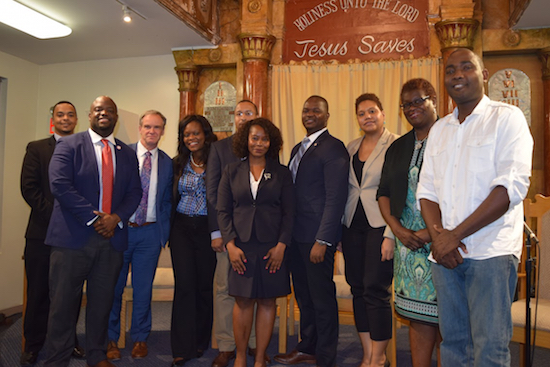Haitian Bar Association hosts talk on community-police relations

This past Monday, at the Mount Zion Church of God 7th Day in East Flatbush, the Haitian American Lawyers Association of New York, in conjunction with the Haitian American Caucus, hosted a community discussion on the relationship between race, community and law enforcement.
“These are trying times that we are experiencing in our country, and if we don’t come together as one, we will all suffer,” said New York state Sen. Roxanne Persaud. “Now is the time to put our differences aside and to work together for the betterment of our country and our community.”
Nearly 100 people packed into the East Flatbush church for the three-hour long event. Ritha Pierre, president-elect of the Haitian American Lawyers Association of New York (HALANY) and Josué Pierre moderated the event.

Brooklyn Boro
View MoreNew York City’s most populous borough, Brooklyn, is home to nearly 2.6 million residents. If Brooklyn were an independent city it would be the fourth largest city in the United States. While Brooklyn has become the epitome of ‘cool and hip’ in recent years, for those that were born here, raised families here and improved communities over the years, Brooklyn has never been ‘uncool’.